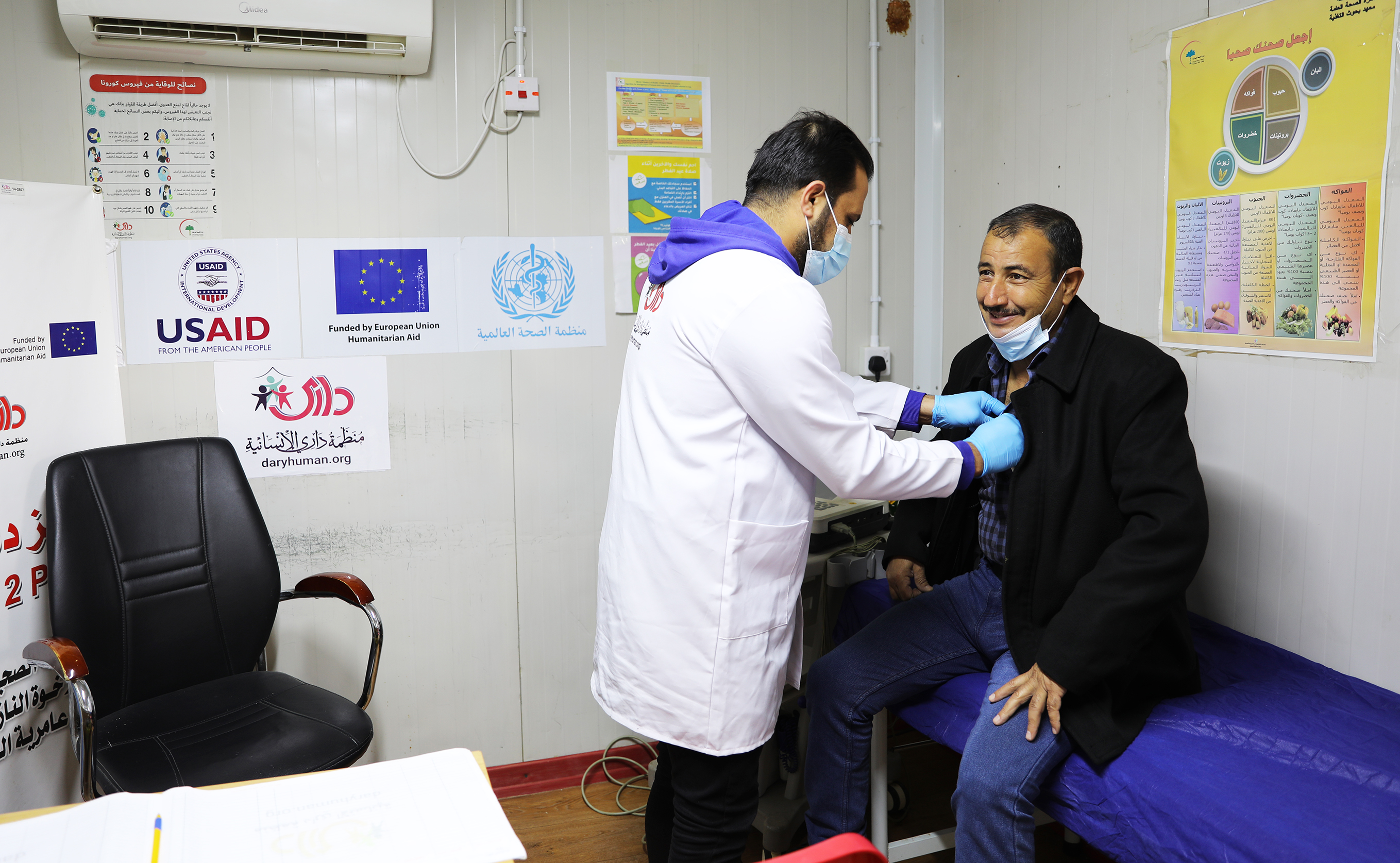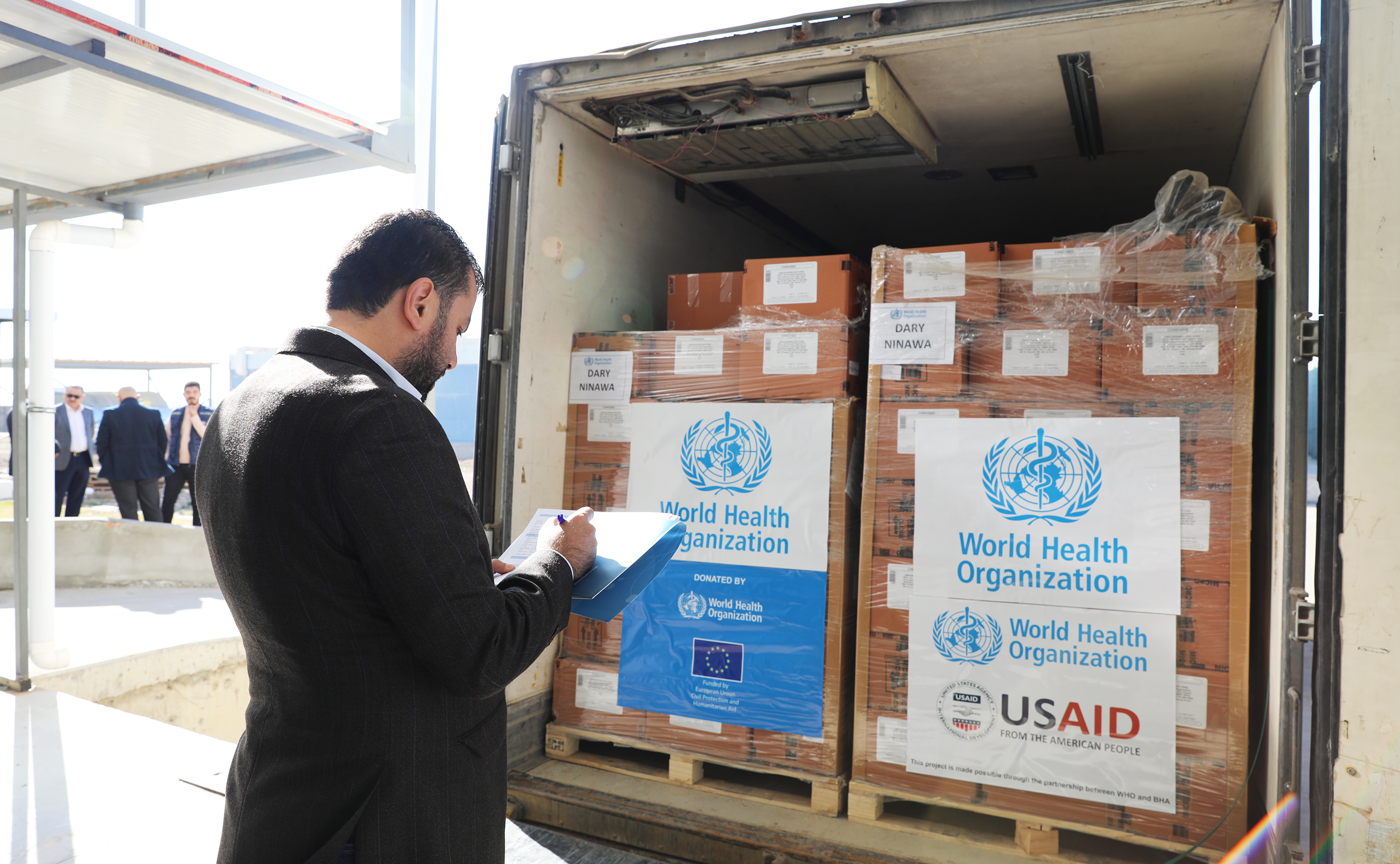Baghdad, 10 August 2023— The World Health Organization (WHO) continues its partnership with USAID’s Bureau for Humanitarian Assistance (BHA) and the EU Humanitarian Aid to strengthen essential primary, referral, and preventive healthcare services in the conflict-affected governorates of Iraq.

The project which targets Anbar, Duhok, Erbil, Kirkuk, Ninawa and Sulaymaniyah governorates, aims to provide uninterrupted primary healthcare services to an estimated 800,000 vulnerable people in IDP camps, out-of-camps and secondary displacement locations as well as host communities.
As WHO transitions from humanitarian response to development and resilience building in the health sector, the project evolves accordingly. WHO’s focus in the years to come lies on strengthening the primary healthcare sector, with subsequent extensions to secondary and tertiary levels. While certain healthcare facilities serving populations of humanitarian concerns are gradually phasing out their operations, the focus is on establishing robust primary healthcare centres that serve both host communities and remaining groups of IDPs and refugees.
"This project is essential in ensuring that people in need of humanitarian assistance in Iraq have access to quality healthcare services. We are grateful for BHA and EU's support and partnership, which enabled us to reach tens of thousands of people in need of support," said Dr Wael Hatahit, Acting WHO Representative to Iraq.
To provide critical medical equipment needed for essential primary healthcare and referral services targeting IDPs in camps and informal settlements, the project has procured essential medicines and medical equipment for primary healthcare centres. The project has supported 22 primary healthcare centres in six governorates, providing over 1.6 million consultations using primary healthcare centres and about half a million consultations using mobile medical clinics.

The project also focuses on timely detecting and responding to common communicable disease outbreaks by strengthening the Early Warning, Alert, and Response Network (EWARN) and other outbreak response activities in IDP camps and returnee locations. Since July 2021, 2292 alerts were reported, of which 760 (32.2%) were verified as true alerts, allowing for strengthening Iraq's capacity to prepare for and respond to public health emergencies.
The project also includes interventions in mental health and psychosocial support services for women. The provision of capacity-building activities for healthcare providers to ensure the availability of quality integrated psychosocial services for women at health facilities culminated in providing about 20 270 related consultations to those in need.
"We are proud of the positive impact of our partnership with BHA and EU, which has a significant contribution to reducing avoidable morbidity and mortality in vulnerable populations in Iraq. As we move forward, we aspire to continue this partnership and expand it to include more programs that will contribute to better healthcare outcomes in Iraq," said Dr Hatahit.


